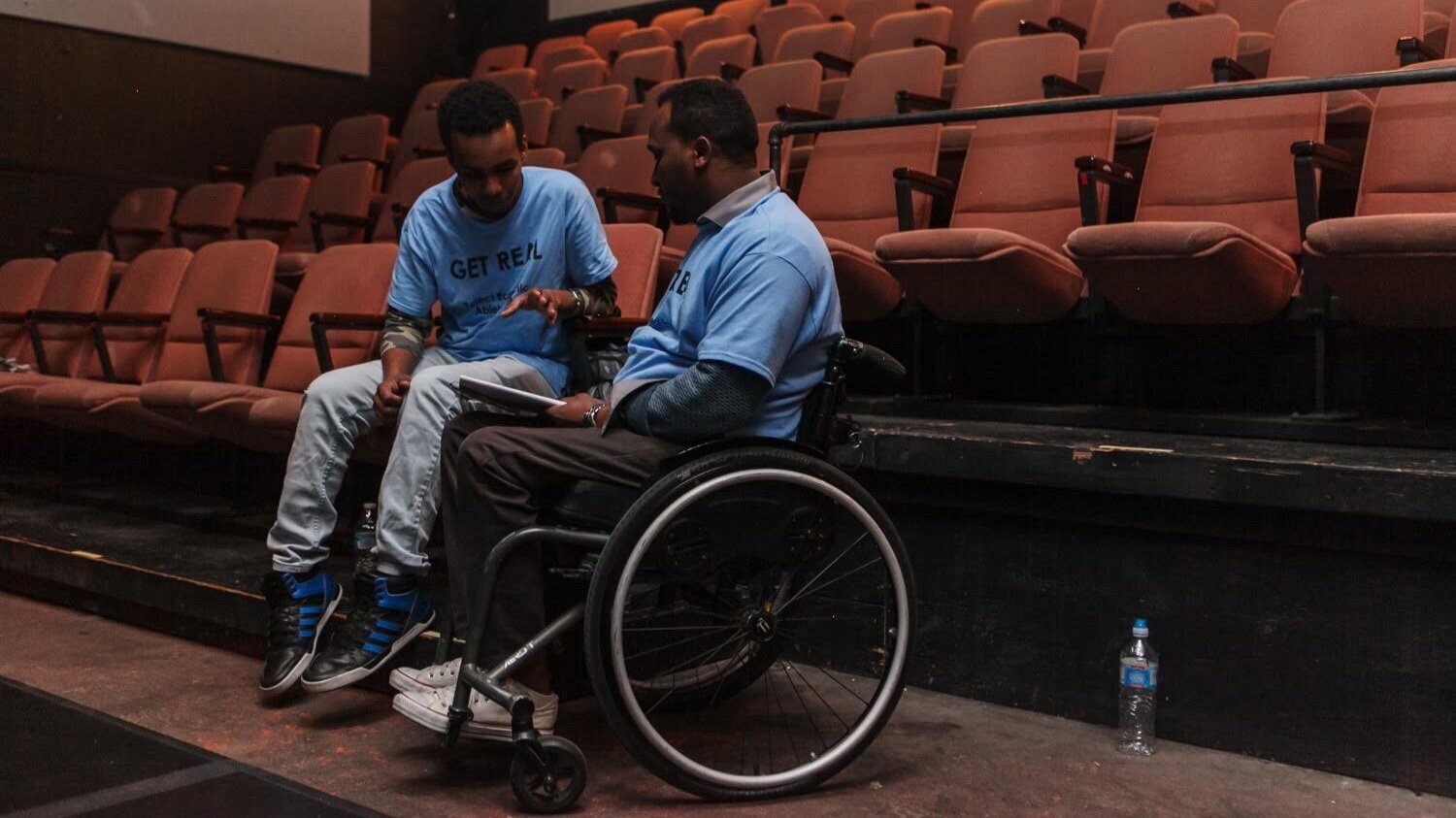Disability Equity
Disability is one of our foundation’s guiding equity frameworks. Disabled Black, Indigenous and other people of color face some of the most significant barriers to health, safety and opportunity in the United States. And it’s no wonder: so many of our policies, practices and places were built without the leadership or involvement of disabled people.
Ableism is the belief (conscious or not) that people with non-disabled bodies or minds are superior and have more of a right to live and take up space than disabled people. Ableism makes us think every disabled person is trying to find a cure. But an individual’s disability isn’t necessarily their primary health issue or barrier, and people with disabilities often aren’t looking to be cured. Many disabled people are proud of their disabled identity and build community around it.
Ableism also makes us think that it’s the responsibility of a disabled person to figure out how to meet their own needs rather than the responsibility of our society. As a result, many disabled people are isolated from our community. We see this play out in the disability services that live within government agencies and nonprofit organizations whose leadership is made up of largely able-bodied people. It is also apparent in the lack of civic engagement opportunities that exist for people with disabilities. This includes a lack of access to funding and opportunities to more meaningfully engage in our democracy.
Disabled BIPOC are often excluded from both communities of color and disability communities. Disabled LGBTQIA2S+ BIPOC are even more likely to be excluded. Funders have underinvested in disability communities, and particularly LGBTQIA2S+ BIPOC disability communities. In addition, our current economy rarely works for disabled BIPOC. That means nonprofit organizations led by BIPOC with disabilities are few and far between.
Our exploration and learning about disability has challenged us to reexamine notions of human value and productivity. The world is designed with the able-bodied in mind. However, solutions designed by and for people with disabilities have potential benefits for us all.
Our commitment to disability equity means we will continually strive to build relationships with disabled BIPOC individuals and communities throughout our region. We’re committed to learning and adapting our strategies to meet BIPOC with disabilities where they are. This may mean making grants to emerging disabled BIPOC-led organizations, regardless of their tax status. We will support culturally-specific and cross-racial organizations to learn about disability justice and incorporate disability equity in their work. We will make the Center for Philanthropy more inclusive by ensuring our spaces are accessible and choose only accessible facilities for off-site events, and we will incorporate access check-ins to normalize having needs and talking about them.

